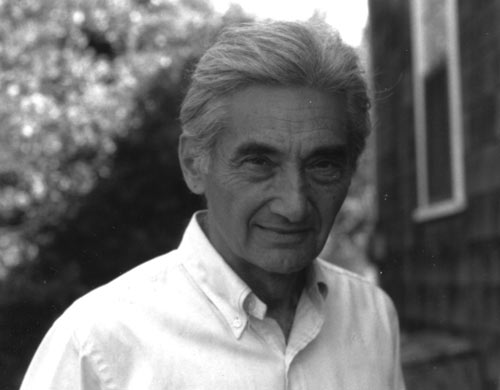
Howard Zinn’s A People’s History of the United States was first published in 1980 and has inspired in some people a fanatical devotion we don’t normally associate with a 700-page history book. Songs, movies, and plays have all been dedicated to Zinn and his work, and a documentary co-written by Zinn based on the book will premiere at this year’s Toronto International Film Festival.
A People’s History is a conscious attempt to provide a different kind of historical record. As Zinn writes early on:
If history is to be creative, to anticipate a possible future without denying the past, it should, I believe, emphasize new possibilities by disclosing those hidden episodes of the past when, even if in brief flashes, people showed their ability to resist, to join together, occasionally to win.
The resistance Zinn refers to involves how people throughout U.S. history have stood against the forces of power--the moneyed elite, government, business--and tried to construct a fairer, more equitable system. A country in which the system worked for the common man instead of the other way around.
It’s amazing how different a history this is. The moving of armies, the electing of presidents, the “great men†of national leadership get only a few lines. Instead the emphasis is on workers and labor unions, women and African Americans, Native Americans and immigrants as they struggle for better and fairer conditions.
By focusing on the stories of individuals (often taken from newspaper accounts), Zinn creates a portrait of a people we don’t hear about in today’s “news,†much less the histories taught in high schools and colleges across the U.S. He makes a point of offering dignity to the dispossessed and heroism to those who have fought on the side of justice, even if they didn’t “succeed.â€
Is the book unbalanced, as Zinn’s critics like to point out? Of course it is, and every once in a while I wondered how indicative Zinn’s examples were. But even that imbalance points to the facade of objectivity that other histories try to build around their own selective quotations and points of view. Yes, Zinn might have an axe to grind, but at least he’s providing a perspective that balances out the stories celebrating the Founding Fathers and “Titans†of big business.
Reading Zinn’s kind of history forces a rethinking of what’s important, a reevaluation of traditional history. Not that other histories are worthless, but what do they leave out? And why do they leave it out? As Zinn himself writes towards the end of the book (in a section that really could function as an introduction):
That makes [this] a biased account, one that leans in a certain direction. I am not troubled by that, because the mountain of history books under which we all stand leans so heavily in the other direction--so tremblingly respectful of states and statesmen and so disrespectful, by inattention, to people’s movements--that we need some counterforce to avoid being crushed into submission.
It helps that Zinn has a lively style. So despite being a 700-page tome filled with details and facts, the book moves along, filled with examples that will fire the mind and spirit. It loses steam towards the end, particularly in the chapters written since 1980, which focus much more on how Carter and Clinton were hardly the reformers their supporters make them out to be. For a book devoted to people instead of presidents, this is a strange emphasis. Still, the thrilling stories of Eugene Debs, the Lawrence textile strike, and many others are inspiring and powerful.
Would I want this to be a student’s only history book? No, for there are aspects of history that Zinn admittedly ignores. But am I happy that this is becoming a more common text in AP and college U.S. History courses? Absolutely. It’s a bracing reminder that history is much more than presidents and generals, and that people’s attempts to create a better world should be celebrated and not forgotten.



